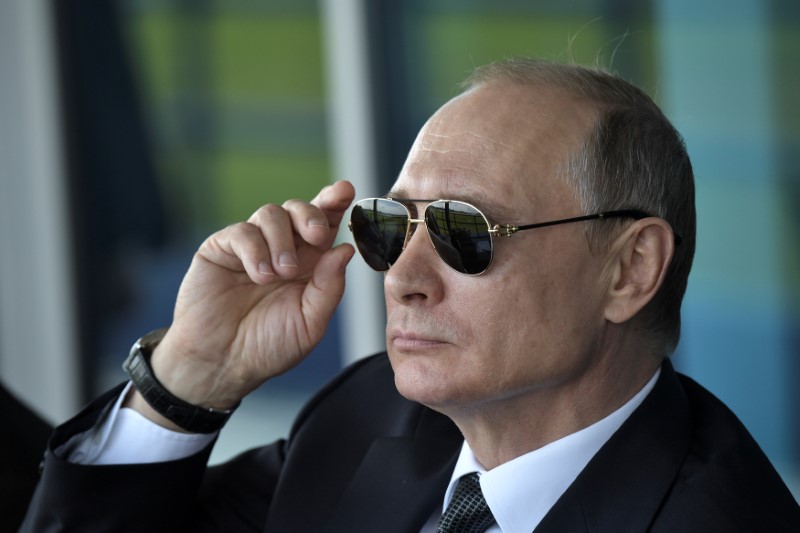MOSCOW (Reuters) - President Vladimir Putin said on Friday he had not yet decided whether to run for re-election in 2018, but promised not to change the constitution to allow him to keep on running for Russia's top political post indefinitely.
Putin, who has dominated Russia's political landscape for the last 17 years and boasts strong popularity ratings, is widely expected to run for, and win, his fourth presidential term in March next year.
Speaking during a question-and-answer session with school children in the Black Sea resort of Sochi which analysts said was designed to widen his support base among young people, Putin, 64, said: "Do I need to continue my work in this capacity - I haven't decided yet.
"I have not yet decided whether to leave my post as president or not. After I address this issue, I will think about what to do next."
When asked whether he had a presidential successor in mind, Putin did not name any names, saying that choice would be up to the Russian people.
Putin served two presidential terms before stepping down in 2008 to become prime minister to avoid a constitutional bar on running for a third consecutive term. He returned to the presidency in 2012 for another term and is legally entitled to serve for a fourth term as well.
Some political commentators have suggested however that Putin could change the constitution to allow him to stay on as president for a fifth term past 2024. The Russian leader ruled that out on Friday.
"I had an opportunity, they even asked me to change the constitution. But I didn't do it, and I don't intend to do it in the future," said Putin.
School children peppered Putin with a range of non-political questions as well, asking him what he did in his spare time and about his childhood memories. They frequently applauded his answers.
When asked what the three most important values in life were, Putin said "life itself, love and freedom."
When asked which events had made the greatest impression on him, he named the 1991 collapse of the Soviet Union, something he has previously called the greatest geopolitical catastrophe of the twentieth century.

Citing a heavy workload, he also said he did not really use the Internet but relied on advisers instead.